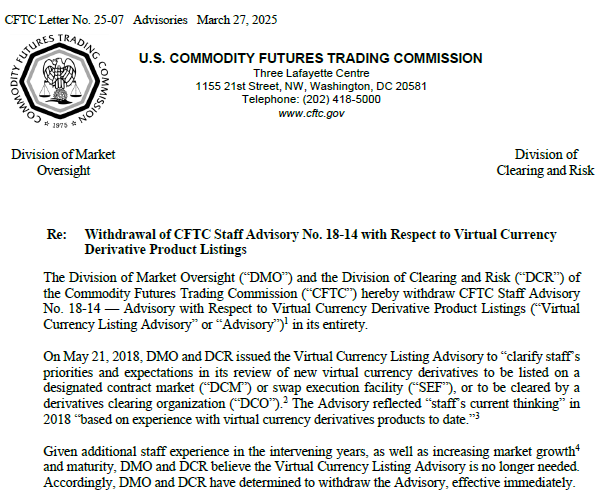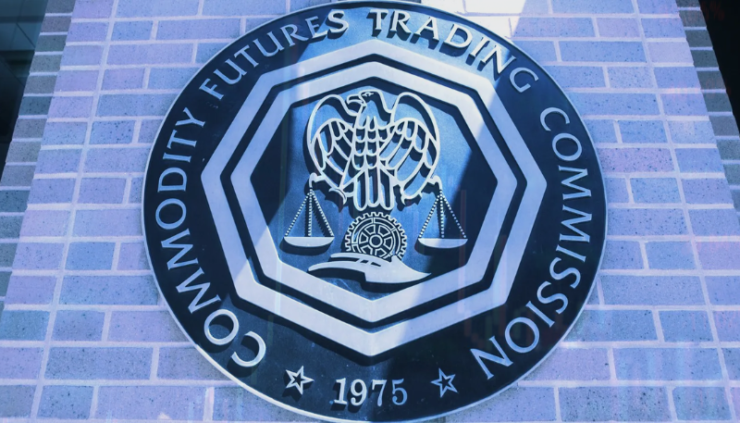In a move that could reshape the future of digital finance in the U.S., the Commodity Futures Trading Commission (CFTC) has quietly dismantled key directives that once cast a regulatory shadow over the crypto derivatives market. The change isn’t just bureaucratic, it’s strategic. And it sends a loud message: digital asset derivatives are no longer second-class citizens in America’s financial system.
The CFTC’s latest pivot could trigger a surge in institutional participation and accelerate the evolution of crypto markets toward maturity, stability, and legitimacy.
On March 28, the CFTC officially withdrew Staff Advisory Nos. 23-07 and 18-14—policies that previously imposed heightened scrutiny on crypto-related products.
Advisory 23-07, issued in May 2023, emphasized the risks of clearing digital assets. Advisory 18-14 targeted how virtual currency derivatives were listed. Both documents had long signaled that crypto markets were being held to a different—and arguably tougher—standard than their TradFi counterparts.
Now, with both advisories declared “no longer necessary,” the playing field has been leveled.

According to the agency, the goal is to eliminate the perception that digital asset derivatives are treated differently. In other words, if you’re trading ETH futures or Bitcoin options, regulators now want you to feel as confident as if you were handling corn futures or oil contracts.
What It Means for the Market
This regulatory easing opens the door for financial giants, hedge funds, asset managers, and even banks to step deeper into crypto markets without facing disproportionate compliance hurdles.
More institutional involvement means more liquidity, improved market depth, and crucially greater price stability.
But there’s a caveat: while the CFTC is moving toward regulatory neutrality, it still expects derivatives clearing organizations (DCOs) to account for the unique risks of digital assets. Risk isn’t being ignored, it’s just being handled with the same seriousness as any other financial product.
The CFTC’s announcement follows a significant decision from the Office of the Comptroller of the Currency (OCC), which recently said banks no longer need prior approval to offer crypto and stablecoin services.
However, the OCC stressed that this flexibility comes with responsibility. Banks must apply the same rigorous risk management controls used in traditional operations. Acting Comptroller Rodney E. Hood reinforced that banks must treat crypto with the same prudence they apply to conventional assets.
This presents a stark contrast: while the CFTC moves to erase regulatory distinctions, the OCC and FDIC are emphasizing risk parity between crypto and TradFi operations. It’s a tug-of-war between innovation and caution—and the crypto industry sits squarely in the middle.
The Bigger Picture
Despite the differing approaches, a trend is emerging. U.S. financial regulators are signaling a growing willingness to reduce entry barriers and encourage responsible innovation. The CFTC’s removal of advisory biases could become a defining moment in U.S. crypto policy one that transforms digital asset derivatives from fringe instruments into core components of the financial system.
The U.S. is positioning itself not just as a watchdog, but as a partner in the development of a global digital economy. And that could make all the difference in a world racing toward decentralized finance.





